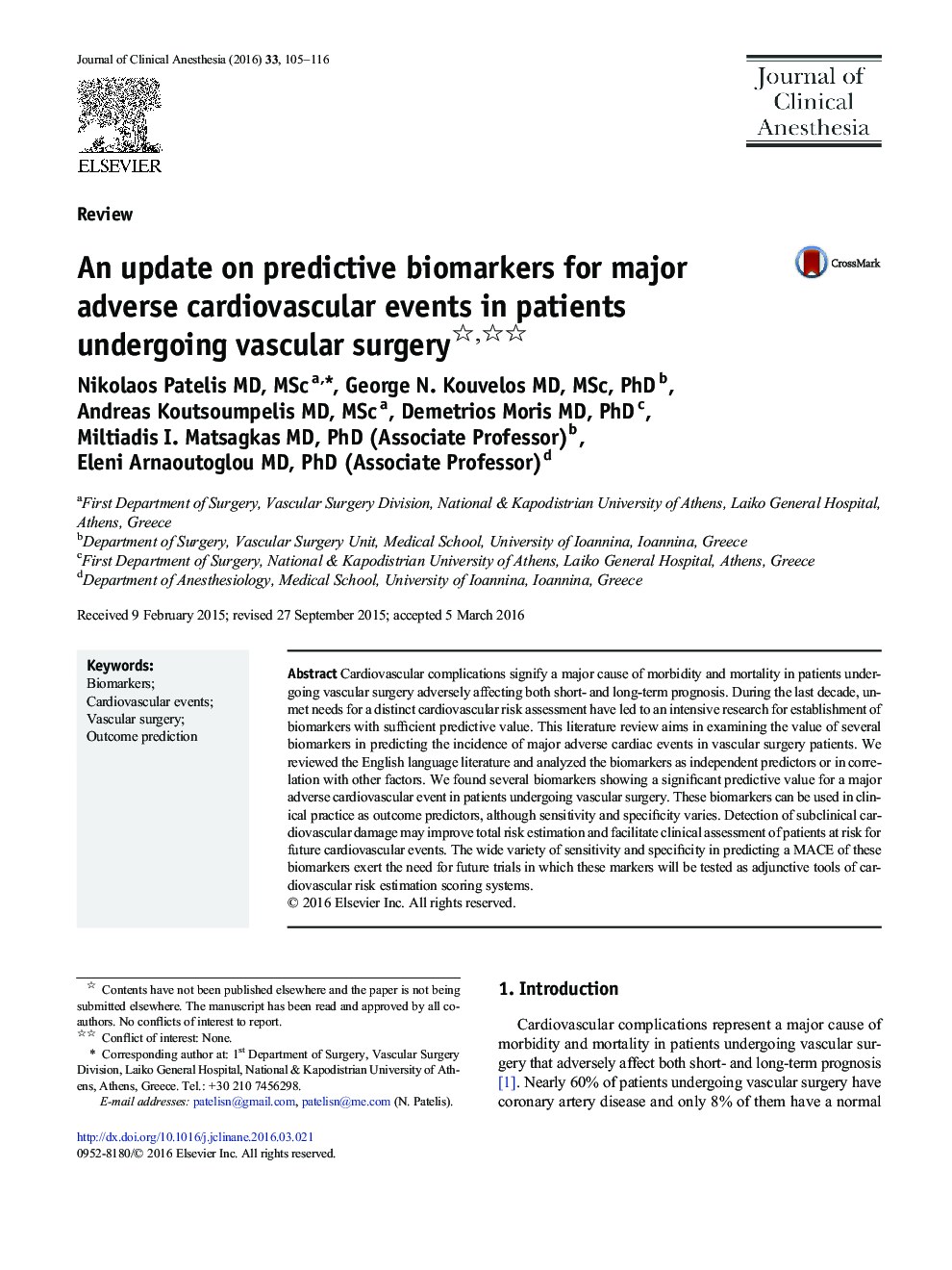| Article ID | Journal | Published Year | Pages | File Type |
|---|---|---|---|---|
| 2762174 | Journal of Clinical Anesthesia | 2016 | 12 Pages |
•Existing risk prediction for vascular surgery patients is disputed.•Using existing prediction criteria to vascular patients has a mediocre performance.•Detection of subclinical cardiovascular damage may improve patient risk estimation.
Cardiovascular complications signify a major cause of morbidity and mortality in patients undergoing vascular surgery adversely affecting both short- and long-term prognosis. During the last decade, unmet needs for a distinct cardiovascular risk assessment have led to an intensive research for establishment of biomarkers with sufficient predictive value. This literature review aims in examining the value of several biomarkers in predicting the incidence of major adverse cardiac events in vascular surgery patients. We reviewed the English language literature and analyzed the biomarkers as independent predictors or in correlation with other factors. We found several biomarkers showing a significant predictive value for a major adverse cardiovascular event in patients undergoing vascular surgery. These biomarkers can be used in clinical practice as outcome predictors, although sensitivity and specificity varies. Detection of subclinical cardiovascular damage may improve total risk estimation and facilitate clinical assessment of patients at risk for future cardiovascular events. The wide variety of sensitivity and specificity in predicting a MACE of these biomarkers exert the need for future trials in which these markers will be tested as adjunctive tools of cardiovascular risk estimation scoring systems.
